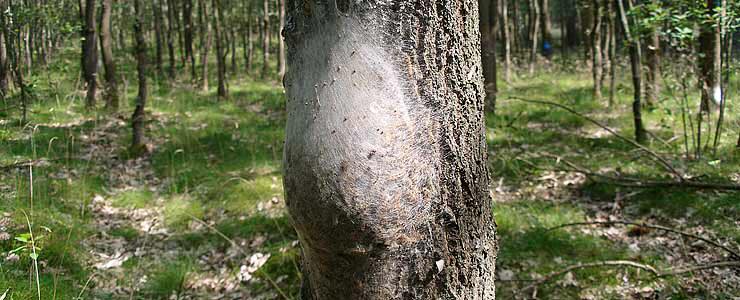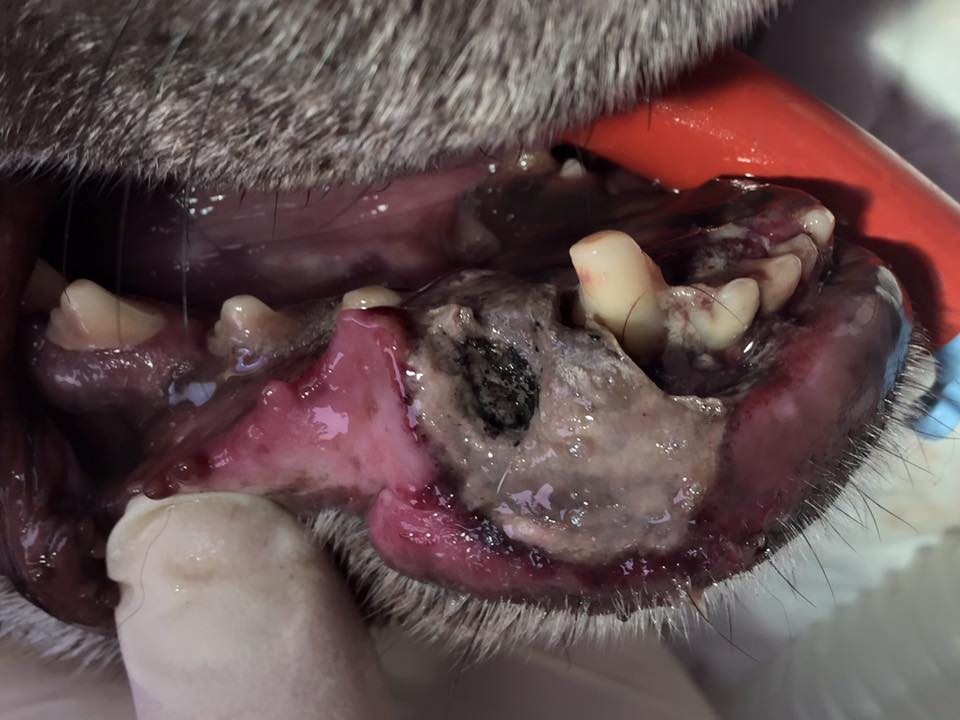**Please share** IMPORTANT NEWS for vets and dog owners regarding Oak processionary moth (Thaumetopoea processionea).
We have recently seen a case of lip and tongue soft tissue necrosis in a dog (see photo) and this is the current presumptive diagnosis.
This is the current update from the Forestry Commission:
"The larvae, or caterpillars, of the oak processionary moth (OPM) are a hazard to tree, human and animal health.
They have been active in oak trees in the affected areas in London, Surrey and West Berkshire since April. (See map at ‘Outbreak Stage’ below). Carefully controlled treatment of affected trees with approved insecticide to kill them while they were still young enough for the treatment to be effective has been completed.

Remaining caterpillars are now large enough and have descended low enough in the oak trees to be recognisable to the untrained eye. They are also now building distinctive white, silken webbing nests on the trunks and branches of oak trees."
Towards the end of their larval development, oak processionary caterpillars are highly irritating to the skin. Contact with the hairs of the caterpillar can cause rashes and eye irritation. Some individuals may have an allergic reaction to the caterpillar's hairs.
When the paws and other body parts of a dog come into contact with the caterpillars' hairs, they become severely irritated. In response, the dog licks the affected area, leaving the dog's tongue severely irritated. The tongue may become necrotic, and it may be necessary to amputate the tongue to prevent sepsis and spread of necrosis. Severe reactions to the hairs may cause kidney failure in the dog, and death may occur.





